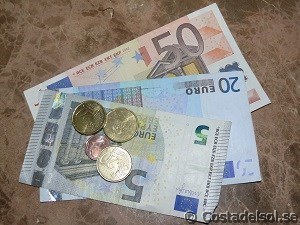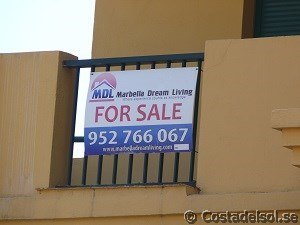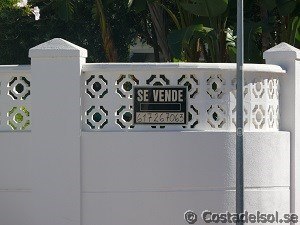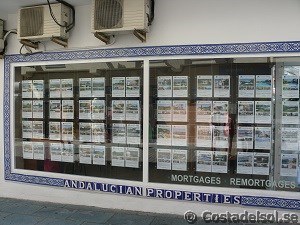Buy a holiday home on Costa del Sol
When buying a house or apartment on Costa del Sol as a foreigner, there are a few important things to consider.
1. Location: Costa del Sol is a large region, and it’s important to consider the location of the property in relation to your desired lifestyle and activities. For example, if you’re looking for a quieter area, you may want to consider towns like Mijas or Marbella, while if you’re looking for a more lively atmosphere, towns like Torremolinos or Fuengirola may be a better option.
2. Type of property: Costa del Sol offers a wide range of properties, from apartments to villas to townhouses. Consider what type of property best suits your needs, and whether you’re looking for a holiday home or a permanent residence.
3. Legal issues: When buying a property as a foreigner, it’s important to have a good understanding of the legal process and to work with a reputable lawyer. Make sure to check the property’s title deeds, and to have all relevant documents translated and notarized.
4. Financing: Consider whether you will be financing the purchase of the property and if so, research the different financing options available. It’s important to be aware of the total costs of buying a property, including taxes, closing costs and any other expenses that may be involved.
5. Legal representation: It’s important to have legal representation when buying a property on Costa del Sol as a foreigner. Make sure to hire a reputable lawyer with experience in property purchases who can assist you through the process.
6. Property Tax: Be aware of the property taxes in Spain, and factor in the cost of these taxes when budgeting for your purchase.
7. Insurance: Make sure to insure your property against potential risks and hazards, such as fire, theft, and natural disasters.
8. Property management: If you’re buying a property as a holiday home and you’re not planning to be there all the time, it’s important to consider property management. It’s a good idea to hire a property manager to take care of your property while you’re away.
By considering these factors, you can make an informed decision when buying a property on Costa del Sol as a foreigner, and can ensure that your purchase is a smooth and successful one.
[wp_ad_camp_1]
Secure the property
When you have found a property, you need to pay a reservation fee of about 3000 to 5000 euros to remove the property from the market. The property is then removed from the market during a reservation period where documents from the property registry are obtained to ensure that all information is accurate. It is important that you have access to these funds and can pay them quickly. If you don’t have the money, you may lose the deal and someone else might put money down before you.
 |
 |
Loan
When considering buying a property in Spain, taking out a loan is a common option for many buyers. The process of obtaining a loan in Spain can be slightly different than in other countries, so it is important to understand the process and what to expect.
Firstly, you will need to provide evidence of your income and credit history. This typically includes proof of income such as pay stubs or tax returns, as well as a credit report from a Spanish credit bureau. It is important to note that the credit scoring system in Spain is different than in other countries, so even if you have a good credit score in your home country, it may not be the same in Spain.
Once you have provided the necessary documentation, the lender will evaluate your application and determine the amount of the loan for which you are eligible. The maximum loan amount will depend on your income, credit history and the value of the property you are purchasing. In Spain, the loan-to-value ratio is typically around 70%. This means that the lender will typically only lend up to 70% of the value of the property.
The next step is to choose the type of loan you want. The most common types of loans in Spain are variable rate mortgages and fixed rate mortgages. Variable rate mortgages have an interest rate that can fluctuate based on market conditions, while fixed rate mortgages have a fixed interest rate for the entire duration of the loan.
Once the loan is approved, the lender will require a property appraisal to ensure that the property is worth the price being paid. After this, the loan contract will be signed, and the funds will be disbursed to the seller.
It is important to note that as a foreign buyer, you may be required to have a Spanish bank account in order to obtain a loan. Additionally, you may be required to have a Spanish tax identification number (NIE) and to pay taxes on the property purchase, such as the VAT (Value Added Tax) or the ITP (Transfer Tax).
Overall, obtaining a loan in Spain to buy a property can be a straightforward process, but it is important to understand the requirements and be prepared to provide the necessary documentation. It is also important to seek the help of a lawyer who is experienced in property transactions in Spain. This can help ensure that the process goes smoothly and that all legal requirements are met.
Inspection of property
When buying a property, it is important to hire an inspector. It should be an approved “aparejador”, Spanish inspector and technical architect. The cost of this usually varies depending on the size of the property. A price example could be for an apartment of 75 m2 about 350 euros plus VAT (21%).
Contract
When you have finally decided on which property you want, the seller, you, and the realtor write a purchase contract. There, the price and possession date are written. When the contract is signed, a down payment is also paid, which is usually 10% of the purchase price. If you do not complete the purchase, you will not get the money for the down payment back.
 |
 |
VAT
When buying a property in Spain, Value-Added Tax (VAT) is typically included in the purchase price. The VAT rate for buying a property in Spain is currently 10% for new properties and 21% for second-hand properties. It is important to note that the VAT paid on the purchase of a property can be offset against the VAT charged on any subsequent sales of the property. Additionally, Non-Resident buyers, who purchase a property in Spain and want to use it as their main residence, can apply for a refund of the VAT paid, under certain conditions. It is recommended to consult with a tax expert or a lawyer for more information about VAT when buying a property in Spain.
NIE number
The NIE (Número de Identificación de Extranjero) is a unique identification number assigned to non-Spanish citizens who need to conduct any type of legal transaction in Spain. This number is required for a wide range of activities, such as buying a property, opening a bank account, paying taxes, signing a contract, etc.
To obtain an NIE number, you will need to go to the nearest police station or National Police Station with jurisdiction in the area where the applicant is resident and present the following documents:
– A valid passport or ID card
– A completed NIE application form (Modelo 790)
– A photocopy of your passport or ID card
– A payment of the fee, currently around 10 euros
It is important to note that if you are buying a property in Spain, the NIE number is required for the purchase process and also to be able to sign the title deed.
Title deed
At an authorized Notary, the title deed is always issued. The final payment is also made and a provisional title deed, Nota Simple, is obtained before the official one. If you cannot attend in person, there is the option to let your lawyer be authorized to sign the title deed. This simple title deed can be used to sign up for electricity, water, and telephone services. It takes a few months before you receive the official title deed, an “escritura”, for the property. On the same day that the title deed is signed, access to the apartment is granted. The cost of obtaining the title deed is paid by the buyer. The Notary charges a fixed fee, which is approximately 0.5% of the purchase price. When everything is finished, the property is registered in the state and municipal property registry. The cost of this is paid by the buyer and is based on the property’s assessed value and is approximately 0.5%.
[wp_ad_camp_1]
Other costs
Additional costs may also arise for connecting and hooking up water, electricity, gas, telephone, alarm, etc. When it comes to normal property transfers, the costs are lower than for new construction. Remember, as previously mentioned, it is important to have a lawyer or jurist with you when buying a property abroad, as it is not easy to interpret all laws and regulations. Laws, rules and costs can also change over time and lawyers and jurists have good knowledge of this.
Running costs
If you own a property in Spain, you must pay an annual municipal property tax based on the property’s taxable value. For an apartment of 100 m2, you usually have to pay about 500 euros per year. It is convenient to have an automatic transfer of this through a Spanish bank. You may also have to pay a fee for waste management. This is paid twice a year. Almost all apartments and villa areas in Spain are part of homeowners associations or co-operatives. Before buying, it is very important to check the association’s finances and also how large the association fee is. The fee depends on the size of the property, how many members are in the association and what level of maintenance is provided. The association is responsible for all costs that relate to common areas, such as swimming pools, green areas, street lighting, etc.
You will also have to pay for water, electricity and home insurance. These costs depend on how much you use the property. It can be a good idea to have these costs on direct debit so you don’t miss paying these bills. You will also have to pay for other costs such as telephone, internet, TV and alarm. Here, it is also good to check out the different providers to get the best deal. There is no TV license in Spain and many channels broadcast free in digital HD format. If you want an alarm, it is good to know what different providers are available. Real estate agents often have good contacts with different providers and can help along the way.

